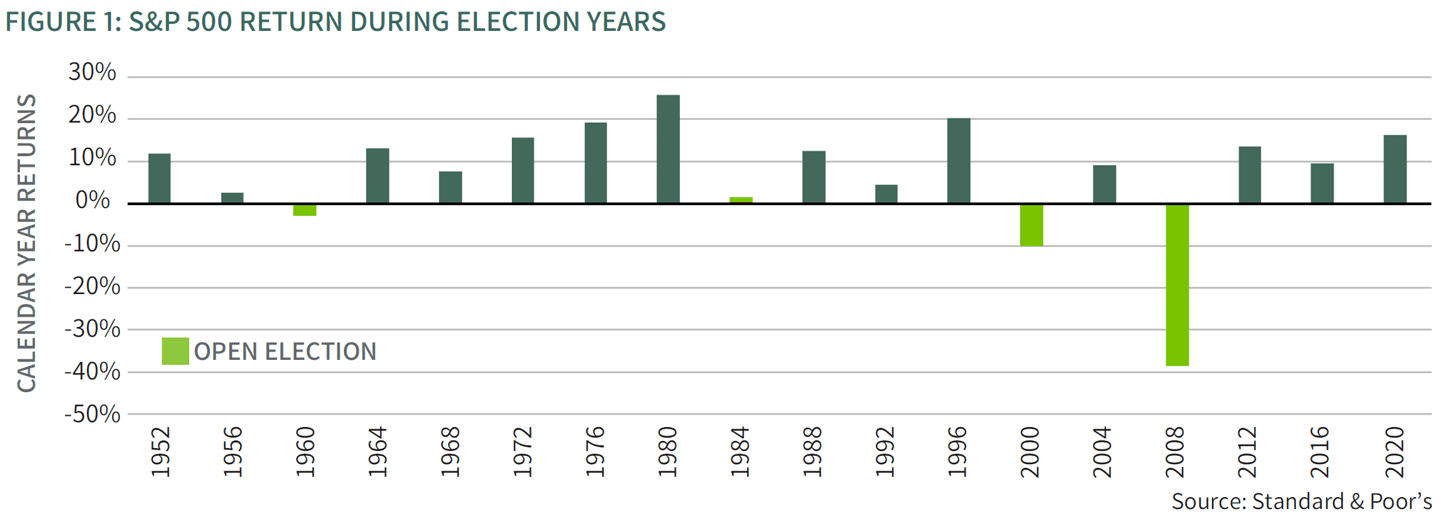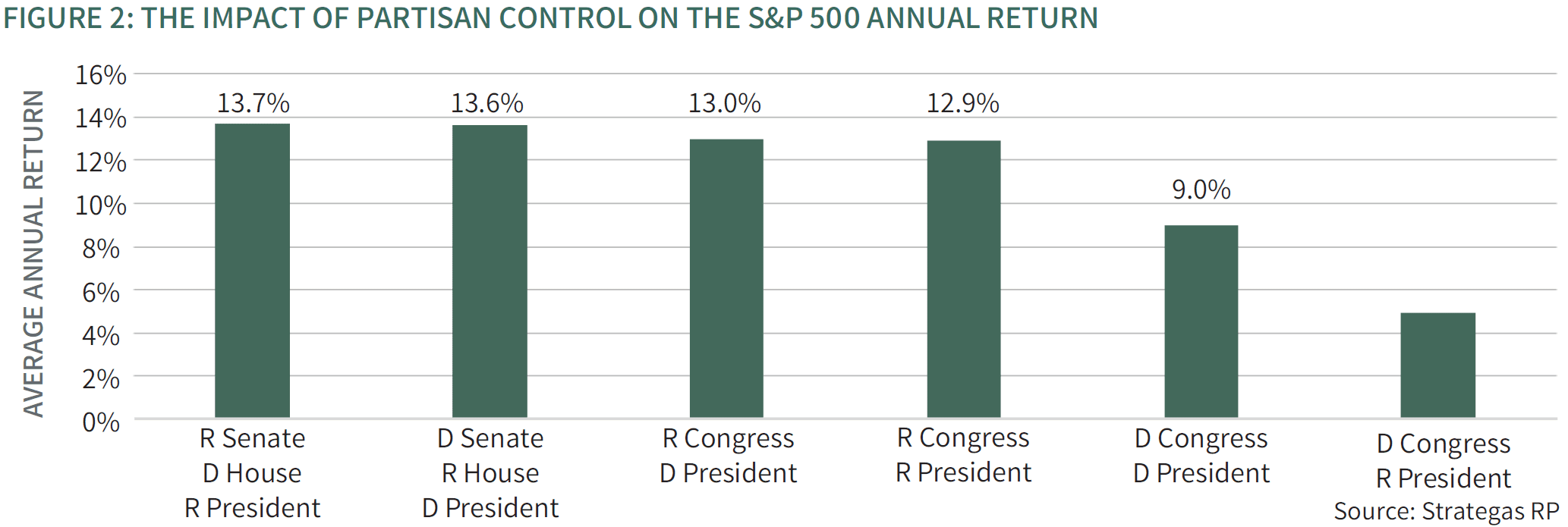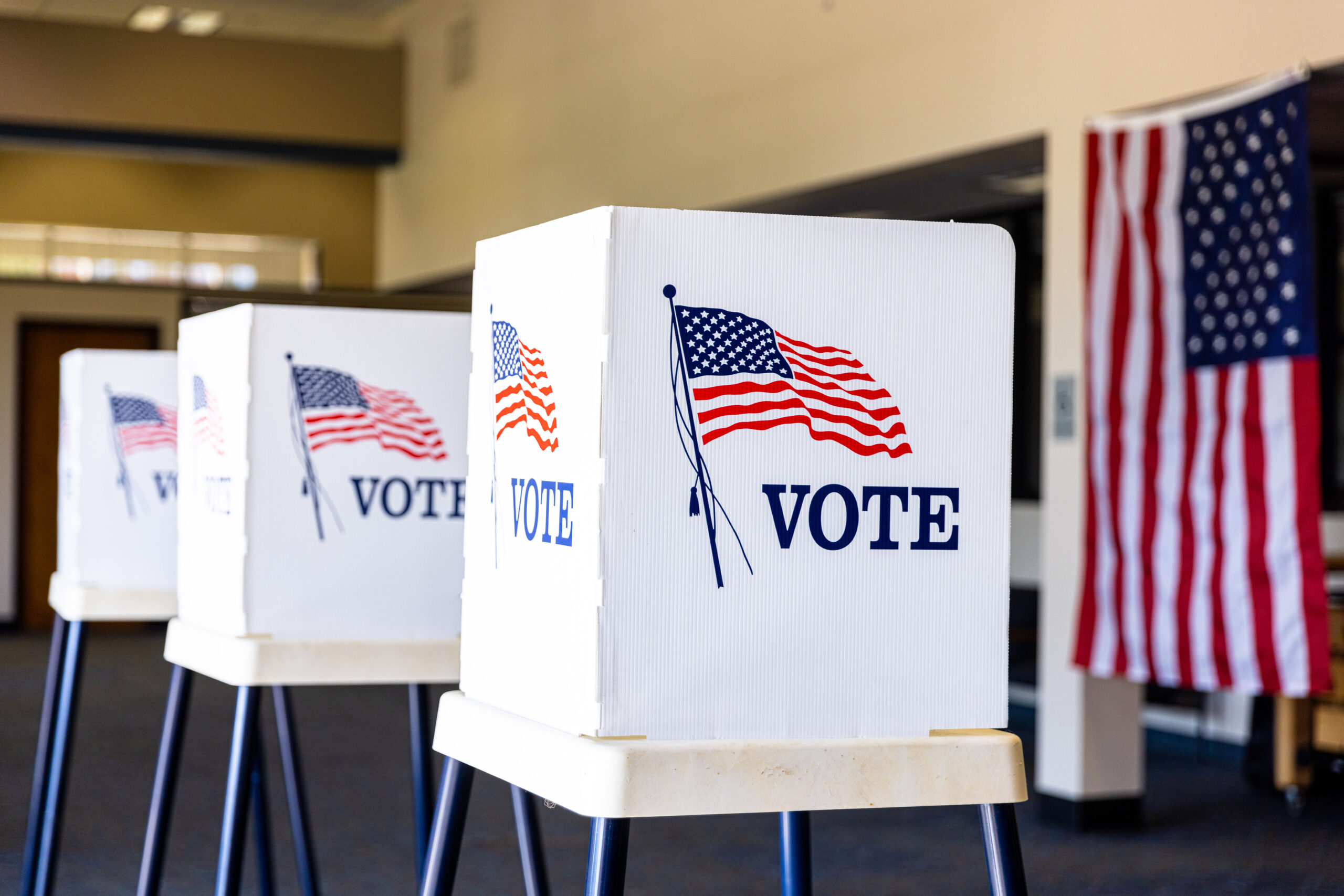S&P 500 Return During Presidential Election Years
Policy uncertainty is predictably at its peak during election years. If there is one thing the stock market hates, it is uncertainty. However, a review of historical data shows little correlation between national presidential election outcomes and capital market performance. Despite intra-year price volatility, annual returns for the S&P 500 during election years have largely been positive. As illustrated in Figure 1, going back to 1952, the S&P 500 has enjoyed positive returns in every election year where an incumbent was in the race.

The Effect of a Divided Government on the Market
Markets perform best when uncertainty is minimized. It has been historically hard for administrations to achieve major policy victories in divided government. This leads to maintaining the status quo, and a positive environment for equities. Certainty of getting nothing done seems to be preferable to the uncertainty of making legislative progress – at least for financial markets. Figure 2 shows that markets enjoy the best performance when not only under divided government, but also divided Congress.

Conclusion
In short, presidential elections matter for people and for intra-year volatility, but in general don’t have an outsized impact on future returns. Data has shown that the most prudent course of action is to remain invested while the volatility plays itself out and make strategic portfolio changes after the dust has settled.
If you have questions, please reach out to your advisor.
